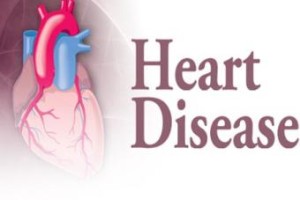- Home
- Editorial
- News
- Practice Guidelines
- Anesthesiology Guidelines
- Cancer Guidelines
- Cardiac Sciences Guidelines
- Critical Care Guidelines
- Dentistry Guidelines
- Dermatology Guidelines
- Diabetes and Endo Guidelines
- Diagnostics Guidelines
- ENT Guidelines
- Featured Practice Guidelines
- Gastroenterology Guidelines
- Geriatrics Guidelines
- Medicine Guidelines
- Nephrology Guidelines
- Neurosciences Guidelines
- Obs and Gynae Guidelines
- Ophthalmology Guidelines
- Orthopaedics Guidelines
- Paediatrics Guidelines
- Psychiatry Guidelines
- Pulmonology Guidelines
- Radiology Guidelines
- Surgery Guidelines
- Urology Guidelines
IIT-Hyderabad develop sensor device for faster detection of Heart diseases

Hyderabad: Researchers at Indian Institute of Technology Hyderabad are collaborating with research institutions across the world to develop a sensor device to detect heart disease with high speed, sensitivity and reliability.
This research was a joint effort between IIT Hyderabad researchers led by Prof Renu John and Prof BD Malhotra, Delhi Technological University collaborating with researchers from IIT Kanpur, Zoological survey of India & Iowa State University, US.
According to an institution press release, their ground-breaking work has recently been published in the peer-reviewed Journal of Materials Chemistry B.
The work not only offers promise in the diagnosis or prediction of heart disorders within minutes but can also be extended to the detection of other diseases, it said.
Renu John, head of the research team, said Biomarkers, biological molecules that represent health and disease states, are specific chemicals that are released in the body in response to certain physiological conditions.
Cardiac troponins or cTns, for example, are biomarkers of heart diseases and are conventionally detected in the bloodstream using antibodies that bind specifically to them.
"Biosensors are devices that combine the sensing element (e.g. antibody) with a transducer that converts the interaction of antibody into an electrical or optical signal that can be measured.
Conventional biosensing includes such techniques as ELISA, chemiluminescent immunoassay and radioimmunoassay," he said.
Renu John and his team tested the performance of the microfluidic biosensors using blood serum of cardiac patients and compared the results with those of conventional chemiluminescence assays.
Prof. BD Malhotra from Delhi Technological University said, "The major issue with the conventional assays for the detection of cTns relates to poor sensitivity and limit of detection. Improvements in detecting biosensors such as cTns in the blood require improvements in the design of the biosensor."He believes that the technique can be extended to other diseases as well by varying the type of biomarker/antibody that is attached to the nanospheres.
Microfluidics based biosensing thus offers new opportunities in areas of biological engineering, biomedical studies, point-of-care diagnostics, and environmental monitoring.

Disclaimer: This site is primarily intended for healthcare professionals. Any content/information on this website does not replace the advice of medical and/or health professionals and should not be construed as medical/diagnostic advice/endorsement or prescription. Use of this site is subject to our terms of use, privacy policy, advertisement policy. © 2020 Minerva Medical Treatment Pvt Ltd